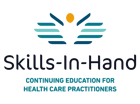Sleep and Recovery

The story is the same: I am just so tired, I don't get good sleep at night, I am stressed, and these sessions make me so relaxed. ESPECIALLY THE NEEDLES. Our regular patients AND athletes can both experience poor sleep quality, or not enough. It can be due to a lot of things, but most attribute it to stress, or more accurately sympathetic over load. Acupuncture is a peripheral nerve stimulant with specific effects on the autonomic nervous system.
Sleep must be of adequate quality in order for it to have a restorative effect on the body. This is particularly true for athletes whose physical and mental recovery needs are higher due to the high amounts of physiologic and psychologic stress.
Positive Effects of Sleep
|
Negative Effects of Sleep Deprivation
|
|
Most adults require 7-9 hours of sleep. Some recommend that athletes actually need more due to their intensive exercise regime and stress on their body. However, elite athletes are known to get less total sleep than non-athletes.
If the balance between training and recovery is inadequate then performance in subsequent training and even competition may be adversely affected. This is true for all types of recovery, not just sleep. Sleep disruption has been identified as the strongest predictor of injury in adolescent athletes, and athletes sleeping greater than 8 hours are less likely to suffer injury! |
How can we help?Electroacupuncture is known to inhibit inflammatory cytokine release, including TNF and IL-6. In addition, along with auricular acupuncture, this method regulates the autonomic nervous system. In the images above you can see the intimate connection between auricular points and the vagus nerve. Combining these points with distal acupuncture points and spinal points is a great method to improve a patient's pain and overall recovery. Furthermore, acupuncture triggers a release in ADENOSINE. Adenosine is molecule that accumulates in the brain while we are awake which triggers sleep pressure. The more adenosine, the easier it is to fall asleep. |
|
|





